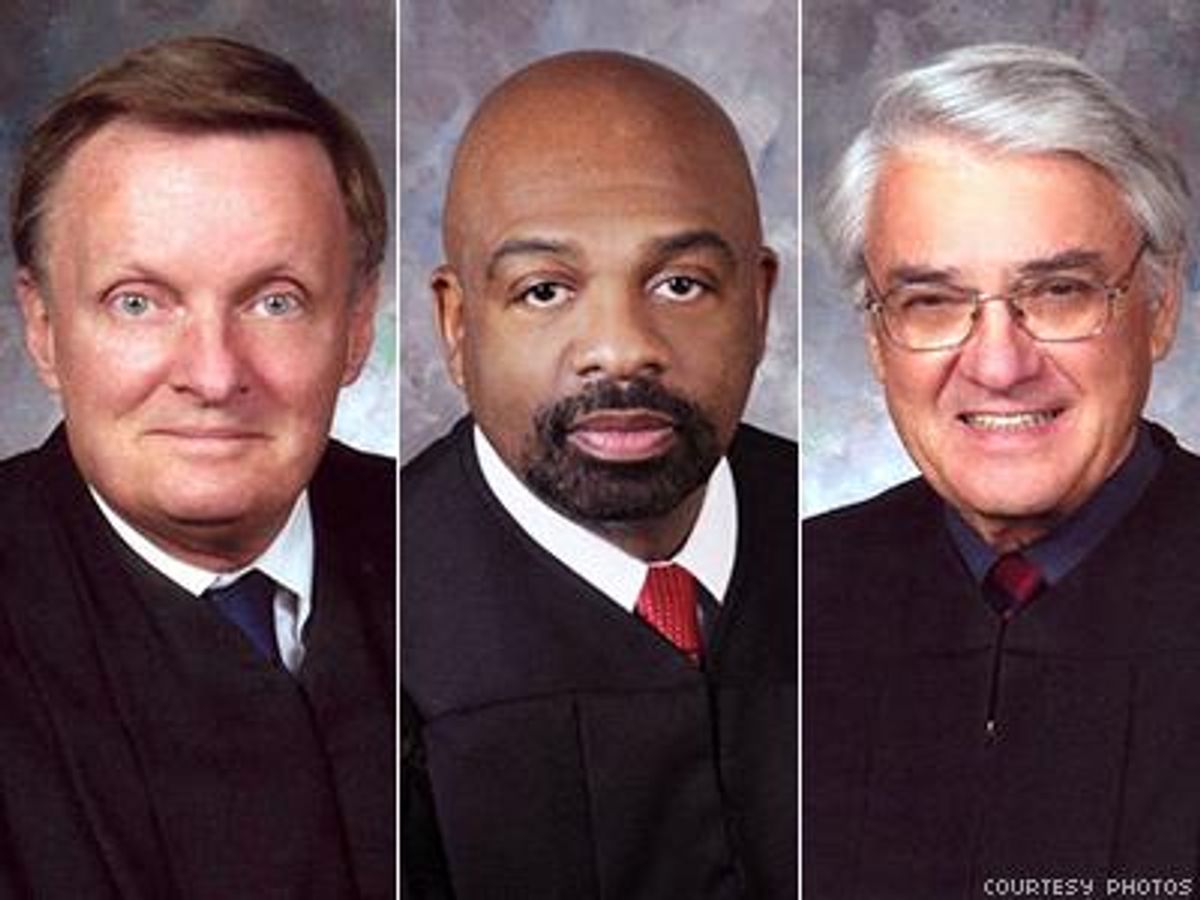Sparks may fly in court this Friday when three marriage equality cases arrive at the Fifth Circuit Court of Appeals for oral argument. The three-judge panel assigned to hear the cases out of Mississippi, Louisiana, and Texas represents some particularly strong -- and opposing -- ideologies.
Judges Jerry Smith, James Graves, and Patrick Higginbotham couldn't be more different.
While Smith and Graves are generally conservative and liberal, respectively, Higginbotham may provide a swing vote in the cases. Born in 1938, Higginbotham became the youngest sitting federal judge when appointed to a district court by Gerald Ford in 1975. From there, President Ronald Reagan appointed him to the Fifth Circuit in 1982.
During his 32 years with the Fifth Circuit, Higginbotham has made a name for himself as being moderate-to-conservative, even as the court itself tilted to the right. He frequently sided with religious parties, upholding the display of the Ten Commandments, as well as an act of Congress that required the consideration of religious beliefs when formulating laws. He has also upheld limits on access to abortion and firearms, and has set a high bar for justifying death penalty sentences.
On more than one occasion, Higginbotham's rulings have carefully navigated a compromise between polar opposites, such as in a race-based admissions case in 2014, and a series of redistricting cases a decade ago. He's known for scrutinizing the minutia of an issue, learning about every aspect of a case to issue a highly detailed ruling.
Crucially, Higginbotham overturned a state law regarding the sale of caskets last year on the basis of due process. That's one of the principles at issue in the marriage cases -- the legal requirement that a state must respect all of the rights that are due to a person.
From Higginbotham, observers can expect to see carefully-targeted questions that may be challenging for parties on either side to answer.
Smith, on the other hand, may direct the bulk of his skepticism to the attorneys representing marriage equality. Like Higginbotham, he was appointed by Reagan; but Smith has been more aggressively conservative, most notably calling those who call for gender equality a "gaggle of outcasts, misfits, and rejects." He overturned affirmative action policies in Texas, and overturned limits on corporate spending to influence elections.
Smith acknowledges that he came to Ronald Reagan's attention after working for his presidential campaign, and through association with many former Yale classmates in the Reagan administration. Most recently, he gained notoriety for ordering Obama administration attorneys to explain their position on the Affordable Care Act in more detail.
Smith is known for intense questioning during oral arguments, so along with Higginbotham, he is likely to keep attorneys for both sides on their toes.
Less can be predicted about Judge James Graves, a relatively recent 2010 Obama appointee. His appointment was supported by civil rights organizations, including the NAACP, as well as by Republican senators from Mississippi. He was the first African-American judge named to the Fifth Circuit.
Friday's Arguments begin at 9 a.m. Central Time. No electronic devices are allowed in the courtroom, but there's a recess halfway through the arguments, so reports from the courtroom may trickle out throughout the morning.



















































































